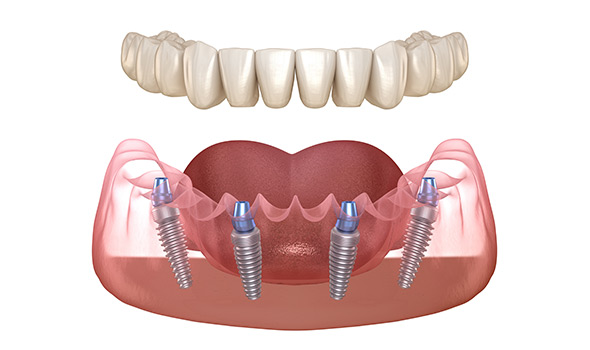Dental implants
Dental implants are the best way to compensate for lost teeth using artificial teeth, which are designed to fit with the gum and other teeth and to integrate with bone replacing the natural tooth root and doing its job for a long time.
Dental implants restore your sense of teeth, last long, maintain the other natural teeth in the mouth and reduce the rate of loss of the rest of the teeth.
dental implants are the most suitable solution for those whose teeth have fallen if they want to restore them and enjoy continuous oral health away from any infections or problems
Dental implant conditions:
The patient must not suffer from

How to perform dental implants
The doctor does the necessary procedures such as x-ray scans and tests for bone and gum safety to grow the tooth and see if physical health problems are affecting the process.
the duration taken to implant each tooth varies from one doctor to another but the average is one hour to one and a half hours per tooth.
Then he takes the next steps:

Step 1
Anesthetize the patient local anaesthetic and sterilize the implanted area

Step 2
is to put the implant in place so the doctor will slit the gums, uncover the bone and make holes in the bone

Step 3
Cover the implant with gum tissue and close the slight wound that was done
Post-dental implants
After dental implantation and the installation of the new tooth, the patient must treat the teeth in a new way to maintain them,
Such as taking into account cleaning gums and not leaving food waste
and make periodic dental examinations every 6 months.
Who is qualified for dental implants?
Public health is a specific factor for dental implants. If you have enough health to take off your teeth, you will be qualified for dental implants. Dental implants are not recommended for those with chronic diseases. Your examination by one of our doctors and the evaluation of your medical history will help determine whether you are eligible for the transplant.

